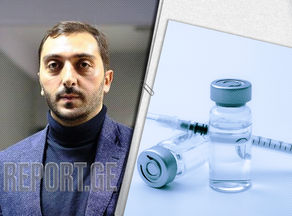
Allergologist-immunologist Bidzina Kulumbegov explained what happens if a person is vaccinated with two different vaccines.
"Due to age restrictions, many European countries have offered the population the second dose of Pfizer vaccine. France, for example, Germany did it before the age limit on AstraZeneca was lifted entirely.
The survey data was published in a very authoritative journal on May 12, and the only thing they saw was that when two different vaccines were given, the incidence of common side effects increased dramatically compared to the case when the patient received the same vaccine.
These people had more pain, weakness, and fever when they got two different vaccines," Kulumbegov said.
According to him, it is likely that people will have to take an additional dose at some point after the second dose.
Kulumbegov notes that in this case, it does not matter what vaccine the person gets the third time, regardless of which drug was used during the first and second vaccinations.
"There can be no permanent immunity, naturally. Respiratory diseases are characterized by variability, and influenza is a classic example of this.
No decision has been made regarding COVID passports that it will be valid for six months. If something changes, it could be 8, 10, 12 months. At this point, we know that we will be protected for six months," Kulumbegov said.























